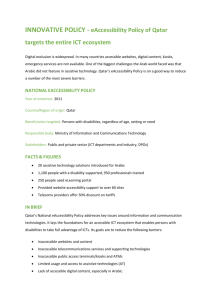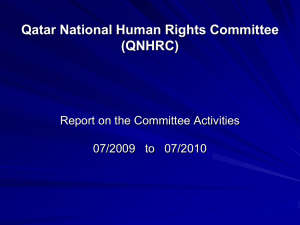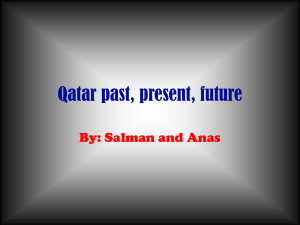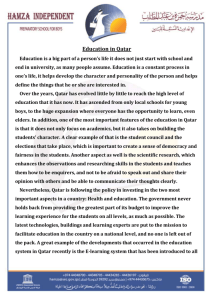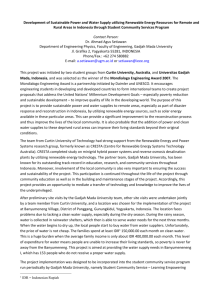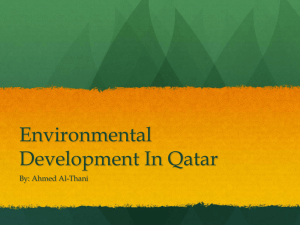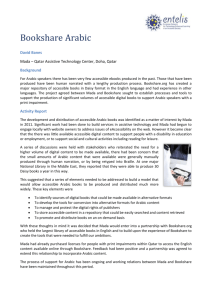Fact Sheet of the experience
advertisement
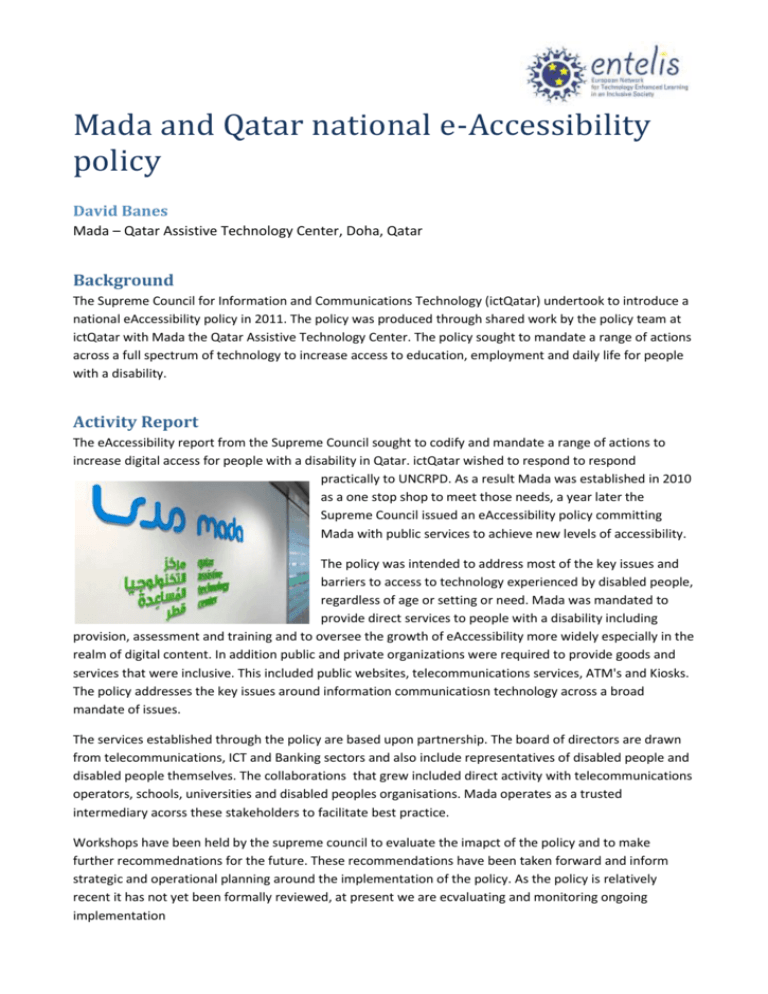
Mada and Qatar national e-Accessibility policy David Banes Mada – Qatar Assistive Technology Center, Doha, Qatar Background The Supreme Council for Information and Communications Technology (ictQatar) undertook to introduce a national eAccessibility policy in 2011. The policy was produced through shared work by the policy team at ictQatar with Mada the Qatar Assistive Technology Center. The policy sought to mandate a range of actions across a full spectrum of technology to increase access to education, employment and daily life for people with a disability. Activity Report The eAccessibility report from the Supreme Council sought to codify and mandate a range of actions to increase digital access for people with a disability in Qatar. ictQatar wished to respond to respond practically to UNCRPD. As a result Mada was established in 2010 as a one stop shop to meet those needs, a year later the Supreme Council issued an eAccessibility policy committing Mada with public services to achieve new levels of accessibility. The policy was intended to address most of the key issues and barriers to access to technology experienced by disabled people, regardless of age or setting or need. Mada was mandated to provide direct services to people with a disability including provision, assessment and training and to oversee the growth of eAccessibility more widely especially in the realm of digital content. In addition public and private organizations were required to provide goods and services that were inclusive. This included public websites, telecommunications services, ATM's and Kiosks. The policy addresses the key issues around information communicatiosn technology across a broad mandate of issues. The services established through the policy are based upon partnership. The board of directors are drawn from telecommunications, ICT and Banking sectors and also include representatives of disabled people and disabled people themselves. The collaborations that grew included direct activity with telecommunications operators, schools, universities and disabled peoples organisations. Mada operates as a trusted intermediary acorss these stakeholders to facilitate best practice. Workshops have been held by the supreme council to evaluate the imapct of the policy and to make further recommednations for the future. These recommendations have been taken forward and inform strategic and operational planning around the implementation of the policy. As the policy is relatively recent it has not yet been formally reviewed, at present we are ecvaluating and monitoring ongoing implementation The policy is publically available. Transference and replication is achieved via the establishment of a Gulf region assistive technology network. This draws upon services, researchers and policy makers across the Gulf region where progress is discussed and resources shared. All of the materials produced by Mada within the framework of the policy are published under creative commons license allowing emerging policy and services to use and reuse the original material. Mada does not encourage replication of the identical model, but rather recommends that principles and concepts are drawn upon. Conclusions The wider impact has also been significant seeing the introduction of universally designed ATM's, specialist handsets and reduced tariffs etc. The innovation allows people with a disability to play a part in the society within which they live. Examples of achievements range from giving a voice to children with autism, to using eye pointing to take part in prayers, to achieving qualifications and employment. The policy supports the wider inclusive agenda in Qatar and the National Vision 2030 The key innovation within this policy was to address the wide mandate for information and communications technology within a single scoping document. By mandating the establishment of servcies with funding it additionally addressed very practical steps to ensure that delivery took place at all levels. the creation of a single body to oversee eAccessibility supported by the supreme council was innovative and ensured that issued were addressed in a coherent and consistent manner. References Research into Barriers to Inclusion in Qatar http://link.springer.com/content/pdf/10.1007%2F978-3-642-31522-0_35.pdf Qatar introduces national eAccessibility Policy http://www.ictqatar.qa/en/news-events/news/ictqatar-introduces-national-e-accessibility-policy Qatar eAccessibility Policy http://www.mada.org.qa/eAccessibility/EN/downloads/QATAR%20eAccessibility%20Policy%20EN_Ref%20 SP110.pdf Contact details David Banes – Mada – dbanes@mada.org.qa
